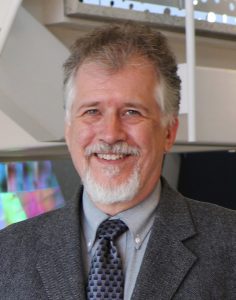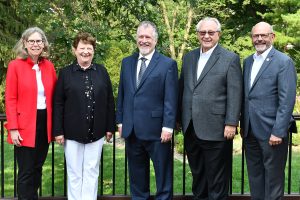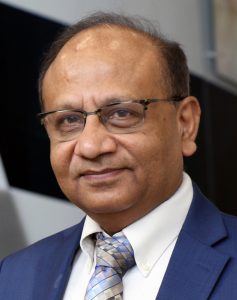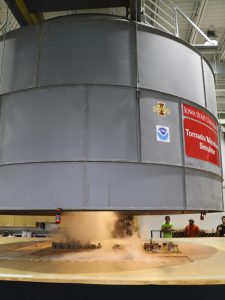Aerospace Engineering chair Alric Rothmayer announces retirement; Sarkar to be interim chair
Author: John Burnett-Larkins
Author: John Burnett-Larkins

Department of Aerospace Engineering Vance and Arlene Coffman Endowed Department Chair Alric Rothmayer has announced his retirement from Iowa State University effective the end of the spring 2023 semester.
A search for a replacement will begin in the near future. Professor Partha Sarkar will serve as interim chair.
Rothmayer retiring after 38 years at Iowa State
Rothmayer began serving as Vance and Arlene Coffman Endowed Department Chair March 1, 2020. Prior to that he held the position of interim chair beginning July 1, 2018.

He has been a department faculty member since 1985, and is a nationally-recognized aerospace engineering researcher and educator. An expert in boundary layer theory as well as multiphase flows applied to aircraft icing, he has contributed to numerous national technical committees and conferences, and was part of the
team that developed physical models and software modifications for a NASA ice accretion program (LEWICE), leading to NASA recognitions for achievement. His research and educational specialties include viscous flow aerodynamics, boundary layer theory, and computational fluid dynamics for Navier-Stokes equations and boundary layer equations. He has researched multi-phase flows applied to aircraft icing and has taught low and high speed aerodynamics and aerospace propulsion. He has studied the development, implementation and evaluation of an effective curriculum for students to learn computational fluid dynamics and has won multiple awards for his teaching and research excellence.
He holds a B.S. in applied mechanics and an M.S. and Ph.D. in aerospace engineering, all from the University of Cincinnati. He has also held a courtesy appointment in Iowa State’s Department of Mathematics.
Sarkar to lead department as interim chair

Sarkar joined the aerospace engineering department at Iowa State as T.A. Wilson and Grace Miller Endowed Chair in 2000. Prior to joining Iowa State he was a faculty member at Texas Tech University for eight years.
He is widely acclaimed for his contributions as an educator and researcher and is nationally and internationally known for his research in structural wind engineering. He possesses a long track record of accomplishments in the broad area of resilient infrastructure to improve the resilience of man-made infrastructure in the areas of civil, aerospace, agriculture, energy (wind and solar), transportation and agricultural crops to wind hazards. Among his research contributions he has significantly advanced the understanding of near-ground flow field and extreme wind loads on civil structures and their response in non-synoptic windstorms-tornadoes, microbursts and gust fronts, and has developed aeroelastic load models and experimental techniques for assessing flutter, buffeting and vortex-induced response of flexible structures. He has also played a pivotal role in administering a unique Ph.D. degree program in the nation on wind energy at Iowa State that has produced 22 PhDs.

At Iowa State, he pioneered and developed unique facilities and innovative experimental techniques used for research, education, and industrial work. He designed and built the world’s first translating tornado/microburst simulator for civil engineering application, and the first aerodynamic-atmospheric boundary-layer wind tunnel with gust generation capability. Dr. Sarkar’s tornado simulator is considered to be the “gold standard” in the field of experimental wind engineering research. These facilities are part of the department’s Wind Simulation and Testing (WiST) Laboratory, developed to address various wind hazard needs.
Sarkar holds a Ph.D. in civil (structural) engineering from The Johns Hopkins University, an M.S. in civil (structural) engineering from Washington State University, and a B.Tech. in civil engineering from the Indian Institute of Technology, Kanpur. Sarkar is a Fellow of the American Society of Civil Engineers and the Structure Engineering Institute.
Iowa State’s Department of Aerospace Engineering has more than 25 faculty members, 17 staff and more than 950 total students, undergraduate and graduate.